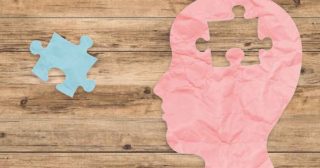
PM announces review of fit note system
Rishi Sunak has announced a review of the fit note system which he claims is being used to...read more
The Women and Equalities Committee held the second evidence session of its inquiry into Menopause and the Workplace, with Karen Arthur and Amy Bennie as witnesses.

Menopause conversations at work and elsewhere need to be more inclusive and reflect the wide range of women affected – and bring men in, T=the second Menopause and the Workplace evidence session heard this week.
Karen Arthur, Campaigner and Founder of Menopause Whilst Black, and Amy Bennie, Chair of Daisy Network Charity, gave evidence and spoke about their own and others’ accounts of the menopause’s impact on their work and daily life.
Arthur highlighted the importance of a wider and more inclusive representation in the discussion so ethnic minorities are included. She said: “You can’t be what you can’t see, and so it’s really important that you’re very mindful of creating committees that have different people and different demographics in there […] A lot of people need to feel that they’re being seen and being heard and you can only do that if there are people in front of you who look like you.”
She then spoke about other challenges ethnic minorities face with studies showing that black women, Arthur’s field of expertise, are more likely to start menopause two years earlier than white women, with their symptoms lasting longer. In her opinion this is something that needs to be taken into account when talking about menopause in workplace.
Bennie talked about equal opportunities and targeted care for all women so there is not a “postcode lottery”. Bennie, who was diagnosed with premature ovarian insufficiency (POI) at age of 16, is now trying to raise awareness and spread information around the condition to more people so that women will not have to suffer on their own without adequate support.
She said: “So when women go to the doctors, all of these symptoms that they get are often put down to lifestyle factors and normal hormonal fluctuation and POI or premature menopause are often overlooked because it’s often not even on doctors’ radars that that could be an option.”
She added: “A lot of our members have symptoms for years going back and forwards before the tests for premature menopause is even done and all it takes is a blood test to get that diagnosis, but there’s such difficulty in even getting that.”
Raising awareness and talking about the menopause to support women in the workplace and in their daily lives was one focus of the session.
One way the government is trying to do so is by including menopause as a part of the sex education curriculum. However, Arthur argued that “putting something on the curriculum doesn’t necessarily guarantee that it’s going to be taught in a way it deserves to be taught”. She explained: “It will be down to resources, it’ll be down to the teacher who’s teaching it, it’ll be down to the department that it’s in”, adding that it could easily get squeezed off a busy PSHE curriculum.
“Menopause is a whole school issue and we need to stop thinking about of it as a women’s issue,” she added.
Bennie stated : “There’s so much focus in education on pregnancy prevention and contraception, and actually, what if that doesn’t happen? What are your options, then, and that’s something that is really lacking in education. It’s about having this full picture of how our bodies actually work. It’s about a wider awareness campaign, it would be great to see the whole variety of women who do go through menopause, not just that stereotype that we imagine, but it can affect anybody from a teenager up to the normal menopausal age.”
This awareness which starts in schools should then be expanded to the workplace, she said. “It’s really important to have that voice of experience of women who have gone through menopause at a younger age […] the entire workforce can be affected, not just one little age group at the top end. it can affect everybody, so constantly have that awareness and making sure that the right voices are in place,” Bennie stated.
Another issue raised was that older workers, women and ethnic minorities get marginalised, so if you are part of that group you are marginalised on different levels. Arthur said: “That would be the reason that a lot of black women won’t tell anybody at work.”
“There is something around feeling that your workplace is supporting you not just because you’re going through menopause, but also because you are a woman and you are seeing people like you being discriminated or worse on a daily basis,” she said.
Bennie spoke of the need to bring men into the conversation, saying: “It’s just opening that conversation with them. Men are not aliens, they do understand, and they will support us. And I think it’s just again, raising that awareness, especially in the workplace, with the men in the office, as well as the women […] and having that conversation and making sure it’s spread to everybody because it affects dads, partners, brothers and work colleagues, everybody.”
Arthur also stressed the importance of talking about menopause. She said: “We bring them into the conversation because we don’t shut up about it, that’s what we do, the way we stop being or feeling embarrassed is by talking constantly about it, it’s always something that’s on the agenda, menopause is a global conversation.”
She added: “Think about the tragedy of how many women we lose from the workforce just because we weren’t talking about menopause, […] all of that talent that is being drained out the workforce because we quietly are encouraged to disappear, and yet, the way we get everybody involved is to just keep talking.”